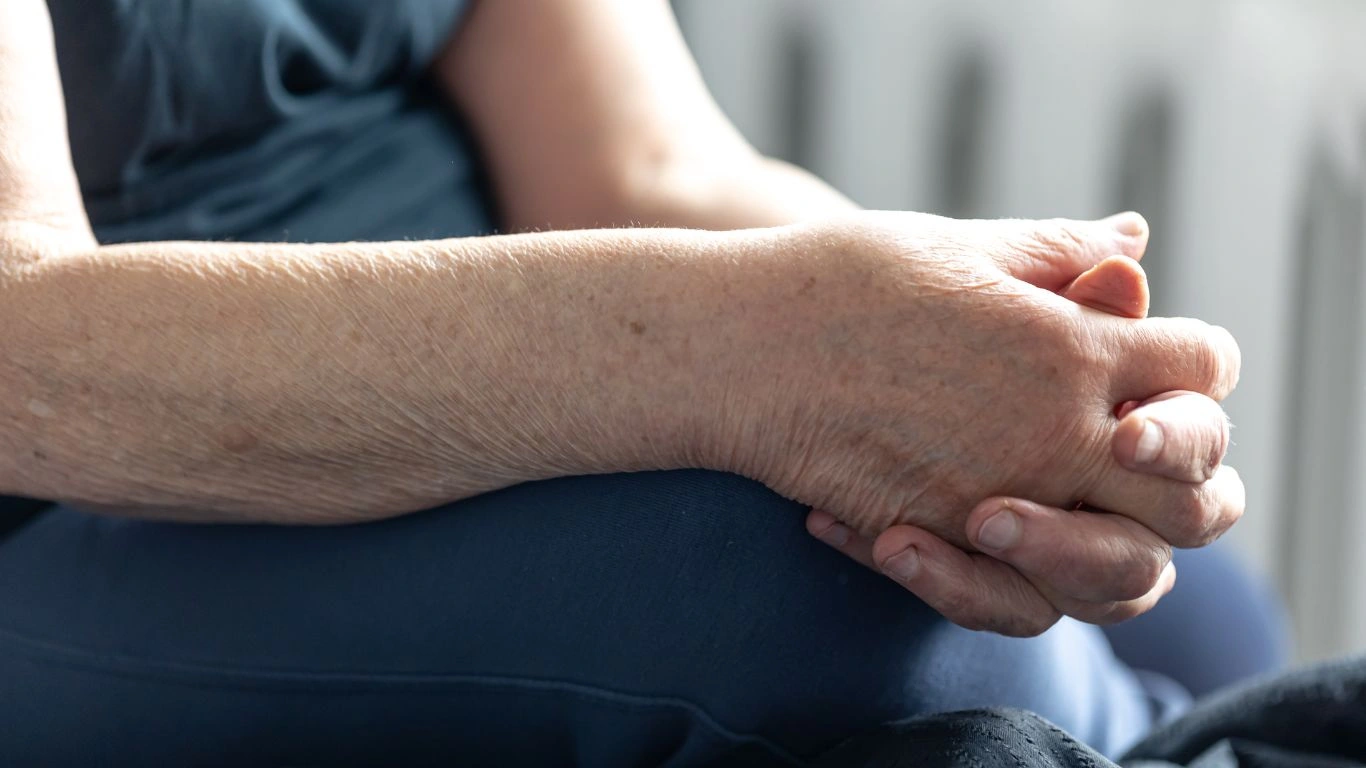Shocking Link Between Rheumatoid Arthritis and Hearing Loss
If you’ve been managing rheumatoid arthritis and hearing loss, or you’ve had patients mention their ears “just aren’t what they used to be,” you’re definitely not alone. I can’t tell you how many times a patient has come in for a follow-up on their RA and casually mentioned they’ve been asking people to repeat themselves more often lately. It’s one of those things that sneaks up on folks—and honestly, many people don’t realize there’s a link. But there is. And as a Rheumatology Nurse Practitioner who’s seen this intersection more often than you’d think, I wanted to break it down in a way that feels clear, down-to-earth, and genuinely helpful.
Understanding the Connection Between Rheumatoid Arthritis and Hearing Loss

Let’s start with the basics. Rheumatoid arthritis (RA) is an autoimmune condition—your immune system mistakenly attacks your own tissues, especially the joints. But here’s what a lot of people don’t realize: RA doesn’t just hang out in the knees or hands. It can also affect other systems in the body—including your ears.
There are several ways RA can contribute to hearing issues, and they aren’t all obvious at first. That’s what makes this topic so important. People often associate hearing loss with aging, loud music, or genetics, not their autoimmune disease. But it’s time we start talking about it more.
So… How Exactly Can RA Impact Your Hearing?
This is one of the most common questions I get, especially when someone has had stable joints but starts noticing weird changes in their hearing. Here’s a breakdown of what’s going on behind the scenes:
- Inflammation of the auditory system: RA can cause inflammation in tiny joints in the middle ear—like the incus, malleus, and stapes. These bones help transmit sound, and when they’re inflamed or damaged, it can mess with how sound is conducted.
- Autoimmune inner ear disease (AIED): This is a lesser-known but real issue where the immune system attacks the inner ear structures. Symptoms include sudden hearing loss, dizziness, and that weird fullness in your ears.
- Medications: Some drugs used to treat RA, such as certain NSAIDs or even high-dose steroids, have been linked to hearing changes. Not always, but it’s something to be aware of—especially if your hearing dips shortly after starting or adjusting a medication.
- Vascular involvement: RA can affect blood vessels, and poor blood flow to the ears might contribute to hearing problems too.
In my own clinic, I’ve had patients who blamed their hearing loss on “just getting older,” only to later discover there was more to the story. One patient I remember distinctly was only 42—way too young for age-related hearing loss. But her RA was active, and after digging deeper, we realized the inflammation was hitting her ears, not just her hands.
Types of Hearing Loss Seen in Rheumatoid Arthritis

Now let’s get into the kinds of hearing loss people with RA might experience. There’s no one-size-fits-all, and that’s honestly what makes this topic so tricky to catch unless you know what to look for.
- Sensorineural Hearing Loss: This affects the inner ear or the nerve pathways from the inner ear to the brain. It’s the most common type linked to RA, especially when autoimmune inner ear disease is at play. Symptoms? Usually a gradual loss in hearing, maybe in one ear more than the other. Some folks also get tinnitus—that annoying ringing in the ears.
- Conductive Hearing Loss: This happens when sound waves can’t pass efficiently through the outer and middle ear. Think fluid buildup, inflammation, or stiffness in the tiny ear bones (yes, RA can stiffen those too).
- Mixed Hearing Loss: A combo of the two. It’s less common, but it’s not unheard of, especially in people who’ve had RA for a long time or have a complicated treatment history.
Here’s a tip from my experience: if you or someone you know with RA starts asking “What?” more often, don’t brush it off. Even subtle hearing changes can impact quality of life—and sometimes they’re the first clue that inflammation is flaring in unexpected places.
Early Signs to Watch Out For
Most patients aren’t going to say, “Hey, I think my RA is affecting my ears.” Instead, they might mention these low-key signs:
- Trouble hearing conversations in noisy places (like restaurants or busy waiting rooms)
- Feeling like one ear is more “clogged” than the other
- Ringing or buzzing sounds (tinnitus)
- Dizziness or balance issues
- Needing to increase TV volume more often
These symptoms might not scream “RA-related hearing loss” right away, but in the context of autoimmune disease, they’re worth paying attention to. I always recommend patients track when symptoms started, especially if they line up with an RA flare or a new medication.
Why Rheumatology Providers Should Be Asking About Hearing

Let me get real for a second—this isn’t something we talk about enough in rheumatology. We ask about joint pain, fatigue, morning stiffness… but how often do we check in on hearing? In my practice, I’ve made it a habit to ask about any ear or balance changes during routine RA visits. Not because I’m an audiologist, but because I’ve seen firsthand how important early detection is.
Even a quick “Noticing any changes in your hearing?” can spark a conversation that leads to real answers. RA is complex. The more we stay on top of all the ways it can show up, the better we serve our patients—or, if you’re the patient reading this, the better you can advocate for yourself.
How to Talk to Your Doctor About Rheumatoid Arthritis and Hearing Loss

Alright, so now that we’ve talked about the “what” and the “why,” let’s chat about the “what next?” I know firsthand that bringing up new symptoms—especially ones that don’t seem obviously related to your RA—can feel awkward. But trust me, your care team *wants* to know.
If you’ve noticed any subtle (or not-so-subtle) shifts in your hearing, don’t wait for your provider to ask. Be upfront. Say something like:
- “Hey, I’ve been feeling more sensitive to sound lately, or having a hard time catching words in noisy spaces.”
- “There’s a ringing in my ears that wasn’t there before.”
- “One ear just feels off—it’s hard to explain, but it’s different.”
And if you’re a provider reading this—maybe a fellow NP or a rheum doc—please consider incorporating these questions into your routine reviews. A simple hearing screen or ENT referral can make a big difference, especially if caught early.
I once had a patient who was hesitant to even bring up her symptoms because she didn’t think her ears had anything to do with her joints. Once we started digging, we uncovered a mild sensorineural loss and caught it early enough that treatment made a real impact. These small conversations? They matter.
Diagnostic Tools: How We Detect Hearing Loss in RA Patients

When I refer a patient out for further evaluation, there are a few main tools audiologists and ENT specialists use. Even if you’re not in healthcare, it’s helpful to understand what to expect, so nothing feels overwhelming.
Here’s what might be involved:
- Pure-tone audiometry: This is the test most people picture—wearing headphones, pressing a button when you hear a beep. It helps determine the quietest sounds you can hear at various frequencies.
- Tympanometry: This evaluates how well your middle ear is working. It’s especially useful when we suspect inflammation or fluid behind the eardrum.
- Speech audiometry: Measures your ability to hear and understand speech, not just tones. Super important because real-life hearing involves voices, not just beeps.
- Otoacoustic emissions (OAEs): These check the function of the inner ear, especially the outer hair cells of the cochlea. Great for catching early inner ear damage.
And remember, hearing issues can sometimes fluctuate. I’ve seen patients who have “good days” and “bad days” when it comes to sound sensitivity or clarity. That’s not in your head. It’s a real phenomenon—often tied to inflammatory cycles.
Managing and Treating RA-Related Hearing Loss

So let’s say you’ve been evaluated, and there’s some degree of hearing loss going on. Now what? Thankfully, there are several routes we can take—both for symptom relief and root cause treatment.
Here’s what management might look like:
- Adjusting RA treatment: If inflammation is the root cause, we need to get that under control. That might mean tweaking your DMARDs or biologics. I’ve seen patients improve significantly once their RA is better managed systemically.
- Referral to audiology: This is essential. Audiologists can fit hearing aids, recommend assistive listening devices, and track any progression over time. It’s not just about “fixing” hearing—it’s about optimizing communication and daily function.
- Corticosteroids: In some cases of sudden sensorineural hearing loss, short-term steroids can help reduce inner ear inflammation. But timing is key—it works best when started ASAP.
- Protecting what you have: Avoid loud noise exposure, wear ear protection when needed, and monitor any new meds for ototoxicity (aka hearing-damaging side effects).
Quick tip: If you ever feel like your hearing took a nosedive overnight, that’s a red flag. It might be sudden sensorineural hearing loss—a true medical emergency. Don’t wait for your next appointment—head to urgent care or call your provider right away. Time matters.
Lifestyle Support and Self-Advocacy
This is the part I feel passionate about—not just as a clinician, but as someone who’s walked alongside so many RA patients in their journeys. Managing rheumatoid arthritis and hearing loss isn’t just about medications and tests. It’s also about empowering yourself to speak up, ask questions, and advocate for your needs.
Things I often recommend to my patients:
- Join support groups: Whether online or local, connecting with others who understand what you’re going through can be incredibly validating.
- Use tech to your advantage: Many phones now have built-in accessibility features that can boost sound or provide captions during calls. Super handy!
- Practice gentle listening strategies: Face people when they talk, reduce background noise, and ask for clarification when needed. No shame in that.
- Keep a symptom journal: This helps you notice patterns—like if your hearing changes with RA flares or medication shifts.
One patient told me that after getting fitted with hearing aids, she realized just how much she’d been missing in conversations—especially with her grandkids. “It’s like I re-entered the world,” she said. And honestly? That stuck with me.
RA takes a lot from people. But with the right tools and attention, hearing loss doesn’t have to be one of them.
Prevention and Long-Term Care: Protecting Your Hearing When You Have RA

Okay, so we’ve covered how rheumatoid arthritis and hearing loss can be connected, what to watch out for, and how to manage it. But let’s talk about the part that often gets overlooked: prevention and proactive care.
Here’s the truth—while we can’t always prevent hearing loss from happening, there’s a lot we can do to slow it down or reduce the chances of it progressing. And it doesn’t have to be overwhelming! In my experience, the patients who take small, consistent steps see the biggest benefits over time.
Practical Prevention Tips
- Stay on top of your RA treatment: This might sound obvious, but it’s huge. The better your RA is controlled, the less likely it is to cause systemic inflammation that impacts things like your ears, eyes, lungs—you name it.
- Schedule regular hearing checkups: Especially if you’ve already had some symptoms or are on long-term meds that could impact hearing. Once a year is a good rhythm, even if things seem fine.
- Avoid loud environments when you can: Concerts, construction zones, even some gym classes—repeated noise exposure can worsen hearing faster than most people think. Earplugs are your friend!
- Watch for medication side effects: Not all RA meds mess with your ears, but some can. If you’re starting something new, talk to your provider about potential ototoxicity, and don’t be shy about asking for alternatives if you notice changes.
- Healthy lifestyle choices: Yep, the usual suspects: don’t smoke, stay active, and manage stress. They all support circulation and immune regulation, which indirectly help preserve hearing too.
One of my patients—let’s call her Maria—started wearing ear protection while gardening with loud tools after we had this very talk. At first, she said it felt silly. A few months later, she came back and thanked me because she’d noticed a huge difference in how fatigued her ears felt afterward. It’s those little lifestyle tweaks that can really add up.
When to Seek Help (and Who to See)

Something I always stress to both patients and colleagues: it’s never “too early” to get something checked out. That whole “wait and see” mindset? Not great when it comes to hearing. If you’ve noticed changes—even if they’re mild or seem inconsistent—bring them up.
These are the professionals who might be on your care team:
- Rheumatologist: Obviously your main RA doc—they’ll be the one adjusting medications and monitoring disease activity.
- Audiologist: Specializes in diagnosing and managing hearing loss. They’re your go-to for testing and hearing aids.
- ENT (Otolaryngologist): If there’s a structural or inflammatory issue going on in the ear, they’ll be the ones to investigate and treat it.
- Primary care provider: Always a good first touchpoint—especially if you’re unsure what’s going on. They can help coordinate referrals and initial testing.
One thing I’ve started doing more often is co-managing these cases with audiologists. We talk about meds, inflammation, and long-term monitoring strategies together. That kind of collaboration makes a big difference—because no one should feel like they’re navigating these overlaps on their own.
Final Thoughts on Living Well with RA and Hearing Loss
Living with rheumatoid arthritis can already feel like a juggling act. Adding hearing loss into the mix? That’s a curveball no one asks for. But here’s the good news—there are so many ways to stay ahead of it, support your hearing, and feel empowered, not overwhelmed.
If you take one thing away from this series, let it be this: you don’t have to accept hearing loss as “just part of getting older” or “something unrelated to RA.” These systems are connected. Your experiences are valid. And with the right care, your quality of life can stay strong—ears included.
Whether you’re a fellow clinician, someone living with RA, or supporting a loved one, my hope is that this guide helped shed light on something that often goes unnoticed until it’s affecting everyday life. Keep listening to your body. Keep asking questions. And never hesitate to speak up—because you deserve to hear everything life has to offer, loud and clear.
References
Disclaimer
This article is for educational purposes only and is not a substitute for professional medical advice, diagnosis, or treatment. Always seek the guidance of your rheumatologist, primary care provider, or a licensed audiologist with any questions you may have regarding your health or a medical condition.

Tarra Nugroho is a dedicated Nurse Practitioner with a strong foundation in family and preventive care. She brings both compassion and clinical expertise to her practice, focusing on patient-centered care and health education. As a contributor to Healthusias.com, Tarra translates medical knowledge into clear, empowering articles on topics like women’s health, chronic disease management, and lifestyle medicine. Her mission is simple: help people feel seen, heard, and informed—both in the clinic and through the content she creates. When she’s not caring for patients, Tarra enjoys weekend hikes, plant-based cooking, and curling up with a good health podcast.







